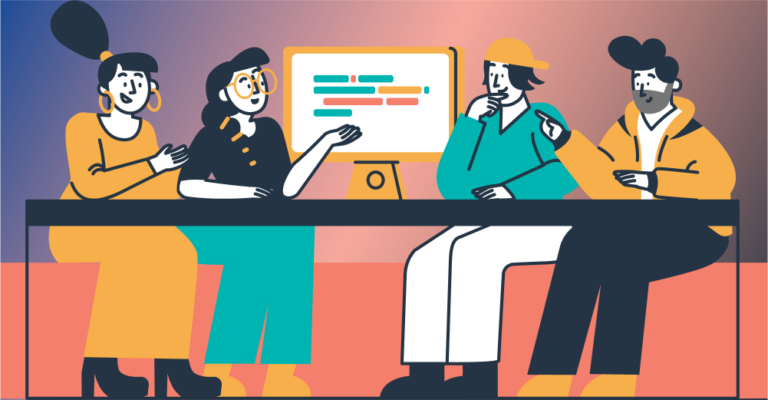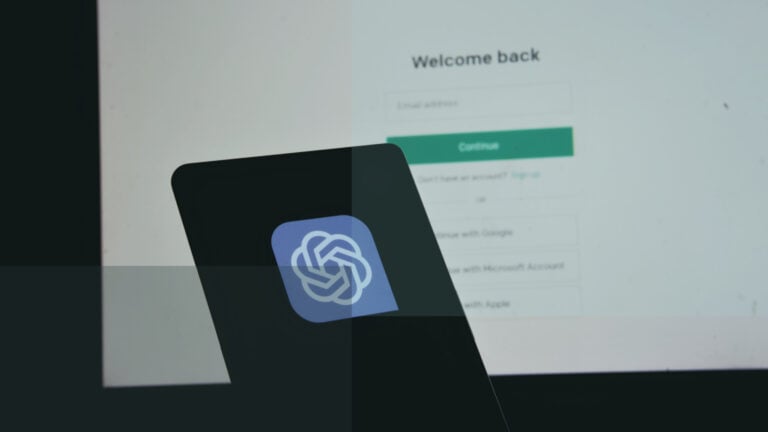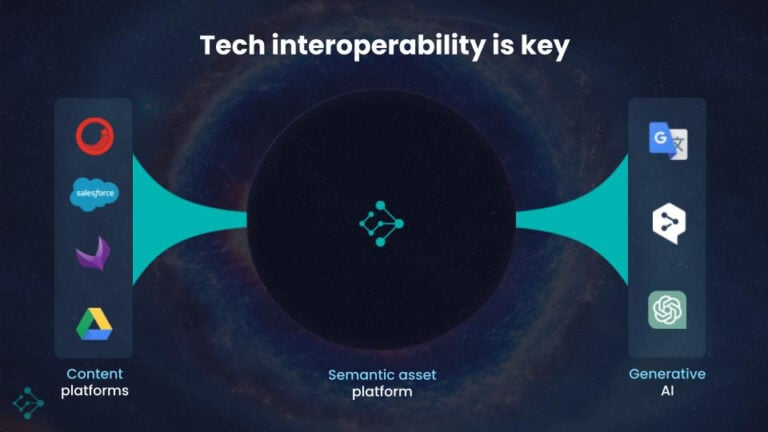The journey of translation technology has been nothing short of a revolution. Gone are the days when translation was a tedious, manual task. Today, Machine Translation software and Generative AI are the avant-garde tools, shaping the way businesses and individuals communicate across linguistic boundaries. In this exploration, we’re not just discussing technology; we’re unravelling the future of global e-commerce needs.
The Evolution of Translation Technology: MT vs Generative AI

Translation is no longer just the concern of linguists or multinational corporations. It’s a crucial tool for anyone looking to make an impact in the global market. Understanding the strengths and limitations of MT and Generative AI is key to unlocking their potential. Whether you’re an e-commerce director aiming to expand your reach or a digital marketing maestro crafting messages for a diverse audience, this is where your strategy takes flight.
At Wezen, we don’t just observe these technological shifts. We’re at the forefront, crafting solutions that harness the best of both worlds. Our expertise lies in not only understanding these technologies but also in knowing how to blend them to create a symphony of seamless e-commerce international deployment. Our approach is pragmatic yet innovative, we’re about real-world solutions that make a tangible difference.
Stay tuned as we delve deeper into e-commerce solutions, where words are more than mere carriers of meaning – they are bridges between cultures, businesses, and people.
Exploring Machine Translation (MT)
Understanding Machine Translation: Capabilities and Limitations
Imagine a world where every tweet, email, or product description could instantly be understood by anyone, regardless of language. That’s the dream Machine Translation software (MT) is chasing. MT, in its simplest form, is like a skilled interpreter, rapidly converting text from one language to another. But unlike human interpreters, Machine Translation doesn’t tire, making it a powerhouse in handling large volumes of content.
However, MT is not a magic wand. It’s a tool, and like all tools, it has its strengths and limitations. Machine Translation Software shines in translating straightforward, well-structured content. Think of technical manuals, basic instructions, or product descriptions. Here, Machine Translation can work wonders, offering quick and cost-effective translations.
Yet, when it comes to nuanced text – like idiomatic expressions, complex literary works, or specialized jargon, MT can stumble. This is where the subtleties of language and culture come into play, areas where Machine Translation software’s algorithmic approach may falter.
Advantages of MT: Speed, Efficiency, and Accessibility
We all know speed is king for e-commerce brands, and this is where MT truly excels. With Machine Translation Software, businesses can translate vast amounts of content in the blink of an eye. This efficiency translates into cost savings, making translation more accessible for businesses of all sizes.
Furthermore, with platforms like Wezen, MT becomes an integral part of content management workflows. It’s not just about translating words; it’s about empowering businesses to operate in a truly global market.
Challenges with Machine Translation: From Context to Complexity
But let’s not gloss over the challenges. Machine Translation, in its quest to understand human language, often misses the mark with context and cultural nuances. A phrase that makes perfect sense in one language might be nonsensical or even offensive when translated literally by MT.
Moreover, languages are living entities, constantly evolving. MT systems need regular updates to keep up with new slang, technical terms, and linguistic trends. Without these updates, even the most advanced MT Software can become outdated.
Wezen's Approach: Enhancing Machine Translation for Modern Needs
At Wezen, we understand these challenges. That’s why we don’t just rely on raw MT output. Our approach is a blend of technology and human expertise. We employ post-editing, where human translators refine MT output, ensuring that the final text is not just accurate, but also culturally and contextually appropriate. Our solution lies in customizing MT engines.
We tailor them to fit specific industry needs, teaching them the nuances of our clients’ languages and sectors. Think of it as teaching a child to speak; over time, it starts to mimic the style and tone that it hears. This process involves feeding the MT system with high-quality, industry-specific datasets – a task where Wezen’s vast experience and sophisticated technology shine.
By leveraging these customized Machine Translation engines, we ensure that translations are not just quick, but also resonate with the intended audience. Whether it’s e-commerce, legal, or marketing content, Wezen’s MT solutions are designed to match the tone, style, and technical precision required by different sectors.
The Rise of Generative AI in Translation

Introducing Generative AI: A New Frontier in Translation
As we venture further into the digital age, a new player has entered the translation arena: Generative AI. This technology, encompassing models like GPT (Generative Pre-trained Transformers), represents a significant leap from traditional Machine Translation. Unlike MT, which primarily relies on existing data to translate text, Generative AI can create, adapt, and even predict language patterns. It’s like comparing a seasoned storyteller to a meticulous editor – each has a unique approach to the narrative of language.
Generative AI’s prowess lies in its deep learning capabilities. It’s not just about translating words; it’s about understanding context, culture, and the subtle intricacies of human language. This makes it particularly adept at handling complex, nuanced content where traditional Machine Translation software might falter.
Generative AI Advantages: Contextual and Complex Language Handling
One of the most exciting aspects of Generative AI in translation is its ability to grasp and convey the nuances of language. It can comprehend slang, colloquialisms, and cultural references, delivering translations that are not just accurate but resonate with a human touch. This capability is a game-changer, especially for content that requires a deeper understanding of context, like marketing materials, creative writing, and brand messaging.
At Wezen, we’re harnessing Generative AI’s potential to offer translations that are more aligned with your brand’s voice and the specific nuances of your target audience. Our systems are trained to pick up on the subtle cues that define effective marketing communication, ensuring that your message is not just translated but truly transcreated.
Limitations of Generative AI in Translation: Addressing the Challenges
While Generative AI is a formidable force in translation, it’s not without its challenges. Language is a complex beast, and even AI can stumble when dealing with exceptions to grammatical rules or highly specialized industry jargon. Moreover, privacy concerns arise as Generative AI systems often require extensive data to learn and improve, raising questions about data security and confidentiality.
In addition, there’s the issue of translation bias. AI models learn from data, and if this data is biased, the translations could inadvertently perpetuate these biases. It’s a concern we at Wezen take seriously, ensuring our AI systems are trained on diverse, unbiased datasets to minimize this risk.
Comparing MT and Generative AI
MT vs Generative AI: A Comprehensive Comparison
When it comes to the art of translation, Machine Translation (MT) and Generative AI are like two virtuoso musicians, each playing their tune. MT is a seasoned orchestra, delivering swift, harmonious translations at an impressive tempo. Generative AI, in contrast, is the jazz improviser, adept at riffing complex, nuanced pieces where each note resonates with deeper meaning.
Machine Translation Software: The Rapid Translator
MT’s prowess lies in its ability to handle vast volumes of content with remarkable speed and efficiency. It’s a boon for e-commerce businesses that need to translate extensive list of products or websites where the primary objective is conveying information quickly and effectively. Machine Translation is cost-effective, making it an accessible choice for a wide range of translation needs.
Generative AI: The Contextual solution
Generative AI, meanwhile, excels in its deep understanding of language subtleties. Its ability to grasp and convey context, culture, and nuance makes it ideal for creative content, marketing campaigns, and brand messaging where every word counts. Generative AI is the craftsman, ensuring that translations are not just accurate but culturally resonant and engaging.
Practical Applications: Showcasing Technology in Action
Consider these examples:
- Corporate Reports: Machine Translation Software efficiently handles these documents, translating factual and straightforward language.
- Advertising Campaigns: Generative AI comes into play, capturing the brand’s voice and the subtlety of persuasive language, ensuring the message strikes the right chord across cultures.
The Power of Synergy
The synergy between Machine Translation and Generative AI is where the magic happens. It’s about harmonizing their strengths, MT’s rapidity with Generative AI’s contextual depth. This combined approach, enriched by our expert linguists, guarantees translations that are not only precise but also culturally attuned and compelling.
Wezen's Unique Integration of MT and Generative AI

Imagine a chef expertly combining ingredients to create a dish that’s greater than the sum of its parts. That’s how Wezen approaches the integration of Machine Translation (MT) and Generative AI. Not just as individual technologies, but as components of a more sophisticated translation recipe.
Crafting Customized Translation Solutions
At Wezen, we believe each translation project is unique, requiring a tailored approach. Our strategy isn’t a one-size-fits-all. It’s a bespoke suit, meticulously crafted for each client.
- Dynamic Content Analysis: We begin by dissecting the content. Like a master watchmaker examining the cogs and wheels, we analyze the intricacies of each text, determining the perfect blend of MT and Generative AI for it.
- Hybrid Translation Methodology: Our approach is akin to a symphony conductor harmonizing different instruments. For straightforward, technical content, we lean on the efficiency of Machine Translation Software. When it comes to nuanced, creative material where tone and cultural subtlety are key, Generative AI takes the stage. The result? A translation that’s not only accurate but also resonates with your audience.
- Human Expertise in the Loop: Despite the sophistication of our technology, the human touch remains irreplaceable. Our linguists and language experts play a crucial role, in fine-tuning and validating the output. It’s a harmonious blend of human creativity and technological precision.
Wezen’s unique integration of MT and Generative AI is not just about technology; it’s about understanding the art and science of translation. Our solutions are designed to:
- Maximize Efficiency: By intelligently combining Machine Translation and Generative AI and working with solution makers, we offer quick turnaround times without compromising quality.
- Ensure Brand Consistency: Our translations maintain your brand’s voice across multiple languages and markets. We allow brands to deploy their tone of voice on every markets with several tools like Memory or Termbase.
- Cater to Diverse Needs: Whether it’s a quick product description or an elaborate marketing campaign, we tailor our approach to meet the specific requirements of each project. The platform responds to every e-commerce needs and objectives.
Future Trends and Wezen’s Role
As we set our sights on the future of translation, it’s like peering through a telescope into an ever-expanding universe. The landscape is rapidly evolving, with Machine Translation Software and Generative AI at the helm, steering us towards uncharted linguistic territories.
Emerging Trends in Translation Technology
- AI-Powered Customization: The future is bespoke. We’re moving towards a world where AI doesn’t just translate but also customizes content for specific audiences, factoring in cultural nuances, local idioms, and even consumer behavior.
- Continuous Learning Systems: The next-gen translation tools are expected to be self-learning systems. They’ll continuously evolve, absorbing new linguistic nuances, and making translations more accurate and relevant.
Looking Ahead: Our Vision
Our approach is twofold:
- Pioneering with Technology: We’re investing in the latest advancements, integrating cutting-edge AI and MT technologies to provide premium quality translation solutions. Wezen is poised to lead the way in AI-powered customization.
- Emphasizing Human Expertise: We believe that the future of translation lies in the perfect marriage of technology and human expertise. Working with linguists and translators is integral to this equation, ensuring that every translation is not just accurate but also culturally resonant.
As we gaze into the future, our vision is clear: to redefine the realm of translation, making it more accessible, efficient, and tailored to the needs of a global audience of e-commerce brands. We’re committed to pioneering solutions that not only keep pace with the evolving trends but also set new benchmarks in the industry. Our commitment is to empower e-commerce businesses and individuals to communicate seamlessly across languages, fostering a truly connected global community.
Stay Connected with Wezen. Keep an eye on our journey as we continue to break new ground in translation technology. Follow us for insights, updates, and stories that shape the world of translation.
